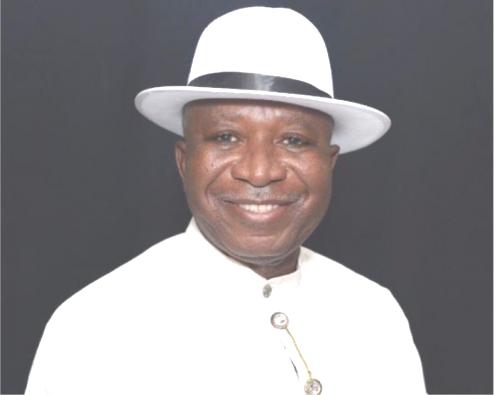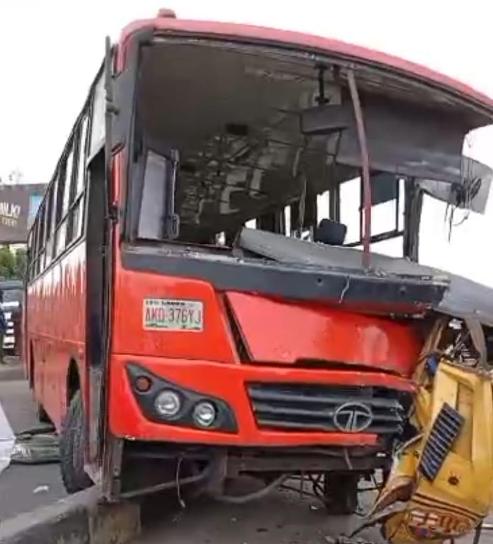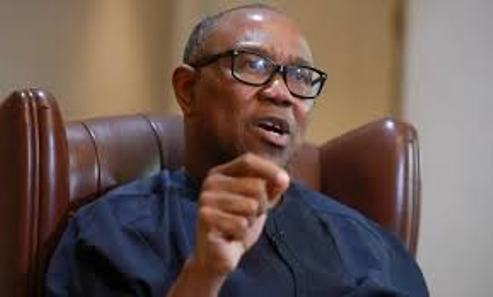By Jerome-Mario Utomi

LAGOS SEPTEMBER 10TH (NEWSRANGERS)-It is now pedestrian information that Professor Dokubo has been disengaged as the Coordinator, Amnesty Programme with immediate effect over allegations of financial misconduct and mismanagement in the Amnesty Programme. What is however, worthy of mention is that following this development, President Muhammadu has in his place, appointed Colonel Milland Dixon Dikio (rtd), as the new Amnesty Programme Boss in the Presidency.
Going by available media reports, Colonel Milland Dixon Dikio (rtd) is from Mbiama, Ahoada West Local Government Area of Rivers State. He attended Baptist High School, Port Harcourt (1971-1975). He was admitted into Nigerian Defence Academy (NDA) 21st Regular Combatant Course and was appointed the Academy Cadets Adjutant in recognition of his leadership qualities. He voluntarily retired in the rank of Colonel in July 2004 and was noted for his high standard of discipline, excellence and integrity. Some of the courses and workshops that positively impacted his career were: French Language Course, Center For Foreign Languages, University of Benin Cotonou, Benin Republic Jul 04-Sep 05,1980; Tank Company Commanders Course, International Military School, Simferopol USSR Dec 01,1989-Apr 26,1990 and the Senior Division Staff Course, Command and Staff College, Jaji-Kaduna Aug 1993–Jul 1994.
Indeed, the above record presents you as eminently qualified and the appointment without any shadow of the doubt has inspired millions of Niger Deltans with hope of brighter prospects for the Presidential Amnesty Programme –which happens to be one of the most sensitive initiatives established to bring peace in the troubled Niger Delta region via disarmament, empowerment and reintegration of the youths.
Expectedly, flood of accolades may have been received from Nigerians of goodwill with more expected for this unique appointment. However, I must confess that since that announcement, despite my familiarity with social responsibility postulations-which teaches that every freedom must go with a responsibility, each time I remember this feat; fears which leave me lost in the maze of high voltage confusion comes flooding.
The reasons for this confusion stems from two similar but separate sources.
It flows from the awareness that Niger Delta is not only a complex region with complex problems but a location where fierce war has been raging between ethnic and social forces. And as a direct consequence, a long dark shadow has been cast on the efforts of successive administration to improve the well-being and economic development of the region’s individual, peoples and community.
In line with the above, there is no doubt that your predecessors on whose shoulders rest the burden of piloting the amnesty programme affairs right from June 26, 2009, when the government of President Umaru Musa Yar adua announced it had of course some legitimate and sincere desire to move not just amnesty programme but the Niger Delta region forward.
However, seperate from failing to remember that the luxury of leisurely approach to an urgent challenge is no longer permissible in modern day leadership arena, it is evident going by commentaries that they (your predecessors) failed to engineer prosperity simply because they chose to do good instead of doing well.
For a better understanding of this position, ‘doing-good entails charity service or so-called selfless service where one renders assistance and walks away without waiting for any returns. On the other hands, doing well describes reciprocation and ‘win-win’ because the doer is also a stakeholder and has an intention to benefit at least in goodwill and friendship’.
To change this trend, localize, grasp and find solution to the critical issues plaguing the programme, it is important to recognize that, bringing a radical improvement or achieving sustainable development will not be possible if you present yourself as all-knowing, more generous, more nationalistic, selfless, more honest or kind, more intelligent, good looking or well-briefed than other stakeholders.
Succeeding on this job will among other things require two things: First, you should guard against the euphoria inspired by such appointments; make no grandiose plans or claims while your thinking is altered by feelings inspired by triumph; and secondly, the corrupting tendency of the additional power you have won. Try not to feel that much less accountability because you have that much power. You still must answer to yourself and you must more than ever lead.
Another point you must not also fail to remember is that your enemies are everywhere and have with this appointment increased in number, locations and forms. “You must love your neighbour but keep your neighbourhood’, view corruption as something/act that destroys and breaks that trust which is absolutely essential for the delicate alchemy at the heart of representative democracy while drawing a good lesson from the present occurrence at the Niger Delta Development Commission (NDDC). A sister initiative also established by the Federal Government to facilitate integrated development in the region but has for yet to be identified reason like a sheep gone its way ’abandoning the people of the coastal areas it was created to protect.
At this point, it is important to remember that the original amnesty document as proclaimed by Yar’Adua was meant to stand on a tripod-with the first part of the tripod targeted at disarmament and demobilization process; the second phase to capture rehabilitation which is the training processes, while third phase is the Strategic Implementation Action Plan. This last phase was designed to massively develop the Niger Delta, but unfortunately ignored by the Federal Government. You must look into this to succeed.
Again, stakeholders have recently questioned the wisdom behind teaching a man to fish in an environment where there is no river to fish or training a man without job creation plan. They are particularly not happy that the amnesty initiative which was programmed to empower the youths of the region via employment, has finally left the large army of professionally-trained ex-militants without job. In fact, the region is in dire state of strait because unemployment has diverse implications. While pointing out that security wise, large unemployed youth population is a threat to the security of the few that are employed, and any transformation agenda that does not have job creation at the centre of its programme will take us nowhere’.
In making this call, it is obvious that there is nothing more ‘difficult to handle, more doubtful of success, and more dangerous to carry through than initiating such changes as the innovator will make more enemies of all those who prospered under old order’. But any leader that does, comes out powerful, secured, respected and happy. This is an opportunity you must not miss.
Finally, as flood of congratulatory messages continue to flow into your home, two things stands out. The moment portrays you as lucky. But like every success which comes with new challenges, the appointment has thrust yet another responsibility on you- an extremely important destiny; to complete a process of socioeconomic rejuvenation of the Niger Delta youths which we have spent far too long a time to do.Therefore, you must study history, study the actions of your predecessors, to see how they conducted themselves and to discover the reasons for their victories or their defeats so that you can avoid the later and imitate the former.
If you are able to correct the above challenge; it will be your most powerful accomplishment for earning new respect and emulation.. And if you are not, it will equally go down the anal of history.
Jerome-Mario Utomi is the Programme Cordinator (Media and Public Policy),Social And Economic Justice Advocacy(SEJA) writes from Lagos









